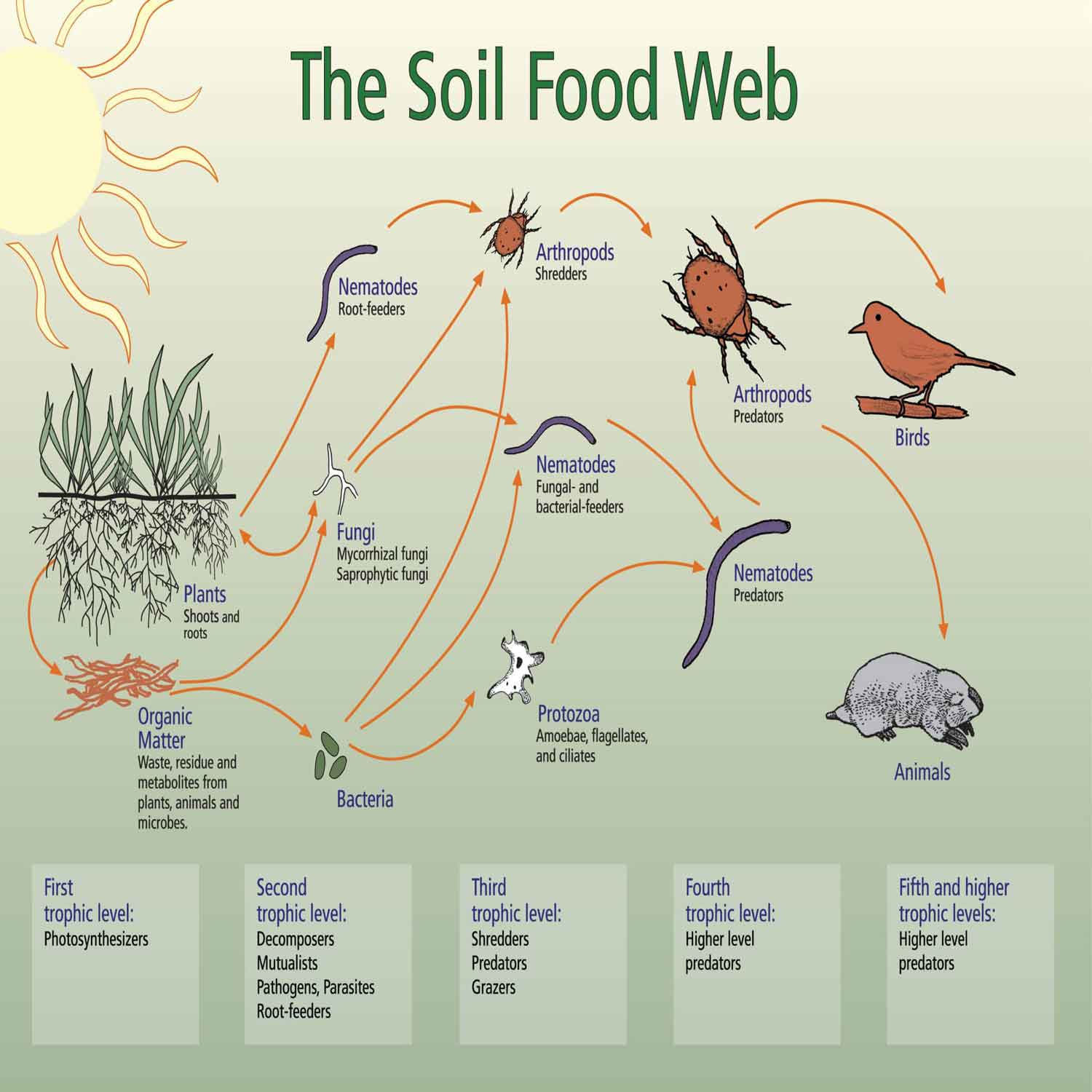IPM
As the picture helps to illustrate, a healthy soil food web consists of many different animals, arthropods and microorganisms feeding on each other. Having a healthy aerobic soil food web means that harmful species are kept in check. When this goes out of balance, we may need to intervene. We can do this by promoting a healthy SFW. We can also try some other techniques such as using a microorganism to out compete its foes or using a pesticide such as Neem to target unwanted species. It is my opinion that a healthy soil food web is the best option, but that may not always be practical in your unique situation
- A combination of Neem oil and potassium silicate every week is a great option for prevention of various pests, mites, gnats, thrips, or every 3 days for infestation.
- Beauveria Bassiana weekly for prevention of mites, thrips and other arthropods or every 3 days for infestation can be very effective
- Nematodes from www.bioforce.co.nz are fantastic for gnats
- Mite-e from Bioforce NZ is a good mite control agent.
- A bio complete compost can have the nematodes already in to prevent gnats or slugs and many other issues. A healthy diverse soil food web can go a very long way to very little pest pressure.
- Monitoring your vapour pressure deficit in greenhouses can go a very long way to preventing mold and mildew, the results of high humidity. While mites are the result of dry conditions. Monitor and control your VPD https://pulsegrow.com/blogs/learn/vpd
- Applying Trichoderma spores, to out compete all other fungi, the drawback here is you will out compete beneficial fungi also.
- Applying Bacillus Subtilis to activate resistance in plants and inhibit pathogens
FAQs
What are the benefits of a healthy soil food web, and how can it help prevent pest problems?
The benefits of a healthy soil food web include keeping harmful species in check, preventing pest problems, and reducing the need for interventions like pesticides.
What are some drawbacks to using certain pest control techniques?
Drawbacks to certain pest control techniques like applying Trichoderma spores or using pesticides like Neem may include negative impacts on non-target organisms or the environment.


